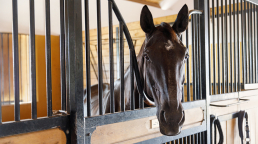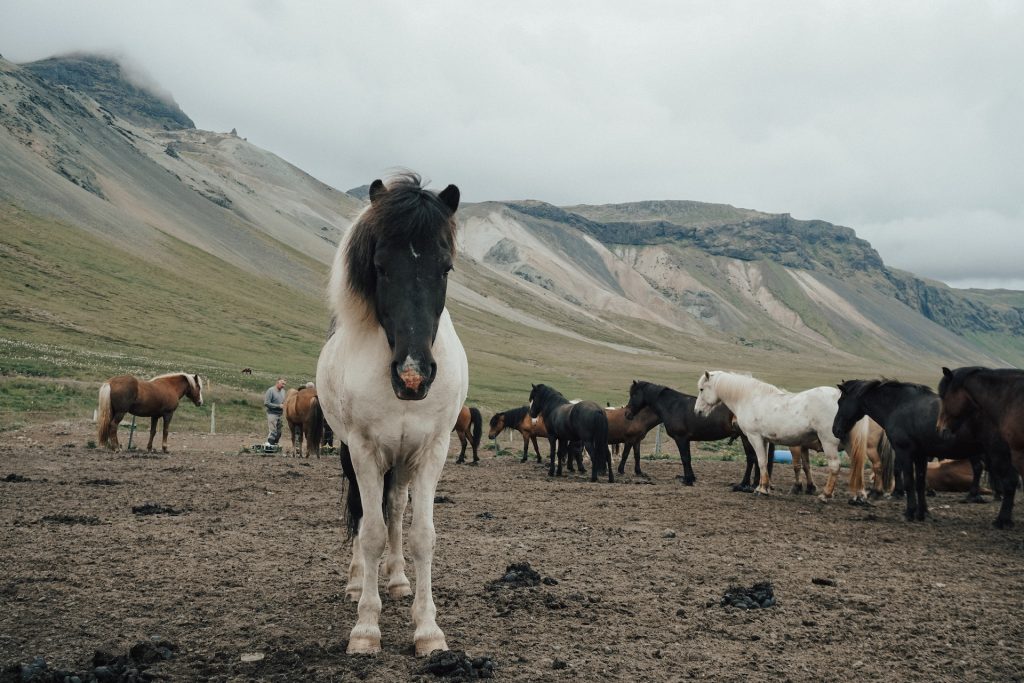
Horse Happiness: Captive vs. Free Range
In recent years, there has been an intense focus on free range. Consequently, the concept has been responsible for endless headlines in the press around the world, including an undeniable impact on global legislation.
What is Free Range?
Free range means that animals are allowed to roam in large open, outdoor spaces for all or part of the day. Thus, there’s a strong belief worldwide that free range benefits the well-being of animals. This is due to a perceived increase in quality of life, plus other benefits:
- Healthier diet
- Produce higher quality food
- Better mental health
- Less stress
- More exercise
- Recreation of natural state
From free range chickens in Brazil to free range pigs in South Africa, there’s a clear effort to improve animal welfare by letting them roam freely, just as nature intended. But is free range always better? Well, when it comes to horses, new research shows that, paradoxically, they’re happier when restricted and controlled. The study, published in Animals, used 47 horses in Rome, Italy, and analysed the cortisol levels in their hair.
Cortisol
Cortisol is a hormone that is released when stress levels are high, in mammals and humans. It triggers the fight or flight mechanism, encouraging you to take action in difficult times. When cortisol is released, it activates the release of glucose from the liver. Its repeated release can lead to mental health issues, including depression and increased blood pressure. It can be found in the hair reliably up to 6 centimetres. It shows activity from the last six months.
Dr. Francesco Cerasoli, lead author, explains that the ‘amount in the horsehair can be an ‘archive’, providing information about the animal’s chronic status of well-being.’
Free range animals are thought to be less stressed. As a result, this would mean that they would have less cortisol release.
Free Range vs. Captive Horses: The Experiment
So, how did the researchers use cortisol to assess the correlation between free range and horse stress? They used three different groups of horses:
- State Police of Ladispoli
- Rome State Police
- The mountains of Abruzzo
These groups and their levels of stress were directly compared in the paper.
- State Police of Ladispoli
Sixteen horses working for the State Police of Ladispoli were profiled. Ladispoli is a town in Rome, on the west coast of Italy.
Each horse was held in a 4 × 4 m stable with a paddock they could go to. They ate hay and feed. They performed training activities and flatwork 3–4 times a week.
- Rome State Police
Sixteen horses were involved in public order with Rome State Police.
Like the previous group, these horses each had 4 × 4 m stables. However, they had no access to a paddock. Most days, they worked in public order. On the days they did not work, they were walked daily.
- The Mountains of Abruzzo
Finally, fifteen wild horses living in the Abruzzo mountains were profiled in collaboration with a local breeder.

The Abruzzo mountains are located east of Rome, within several national parks.
These horses were the closest to free range profiled. They were provided natural food and hay with no supplements. They had water in tanks. There were also various other animals living in the mountains, including deer, wolves, and bears, but no humans.
The Results
To sum up, it was found that the wild, free range horses living in the mountains had higher cortisol levels, meaning that they were more stressed than those kept in controlled, restricted environments.
Dr. Cerasoli states:
This evidence contradicts some common beliefs stating that a free-raging animal, capable of expressing its natural behaviour, would experience higher levels of well-being than the one at work and managed by humans (obviously following correct management procedures).
Our conclusion is that proper management by humans seems more respectful of horses’ well-being than a pure nature condition.
What’s Next For Free Range Research?
This is an important step forward for equine health knowledge. Certainly, it also improves our understanding of free range, as well as equine wellbeing on a large scale. All in all, these surprising results could also improve the global understanding of animals. Thus, raising awareness of free range itself, as well as horses’ welfare, could help educate the masses and change legislation.
If you’re interested in contributing to this field, you can submit to Animals.











Oh for goodness sake. Would you rather have the stress of your wild life or no stress in a prison cell? It’s an interesting study but this account of it is limited in wisdom.